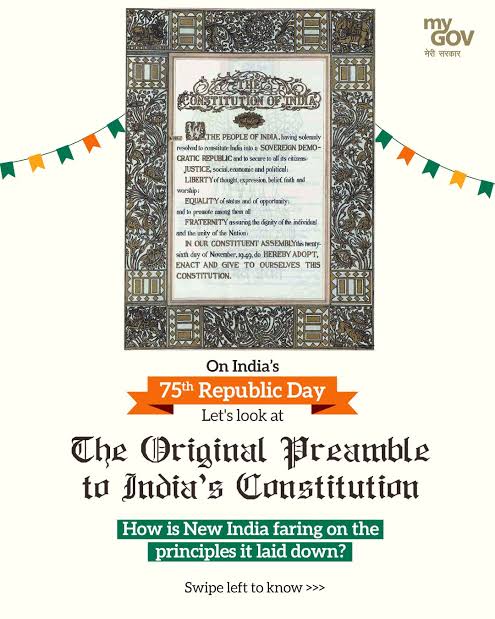Constitution
The Constitution of India was drafted by the Constituent Assembly, and it was implemented under the Cabinet Mission Plan on 16 May 1946. The members of the Constituent Assembly were elected by the provincial assemblies by a single, transferable-vote system of proportional representation. The total membership of the Constituent Assembly was 389 of which 292 were representatives of the provinces, 93 represented the princely states and four were from the chief commissioner provinces of Delhi, Ajmer-Merwara, Coorg and British Baluchistan.
The elections for the 296 seats assigned to the British Indian provinces were completed by August 1946. Congress won 208 seats, and the Muslim League 73. After this election, the Muslim League refused to cooperate with the Congress and the political situation deteriorated. Hindu-Muslim riots began, and the Muslim League demanded a separate constituent assembly for Muslims in India. On 3 June 1947 Lord Mountbatten, the last British Governor-General of India, announced his intention to scrap the Cabinet Mission Plan; this culminated in the Indian Independence Act 1947 and the separate nations of India and Pakistan. The Indian Independence Act was passed on 18 July 1947 and, although it was earlier declared that India would become independent in June 1948, this event led to independence on 15 August 1947. The Constituent Assembly met for the first time on 9 December 1946, reassembling on 14 August 1947 as a sovereign body and successor to the British parliament’s authority in India.

Liberty
Liberty can be defined as the state of being free within society from oppressive restrictions imposed by authority on one’s way of life, behavior, or political views. It emphasizes the rights of individuals to be left alone and make their own choices without interference from the government or other institutions. The idea of liberty is enshrined in the Indian Constitution, which guarantees a number of fundamental freedoms such as freedom of speech, religion, and the press.
Everyone is equal before the law. Liberty: The term ‘Liberty’ means freedom for the people to choose their way of life, have political views and behavior in society. Liberty does not mean freedom to do anything, a person can do anything but in the limit set by the law.
Ex: Playing Swords on street not comes in liberty or freedom. Government executives should take the action before the crime happens.


